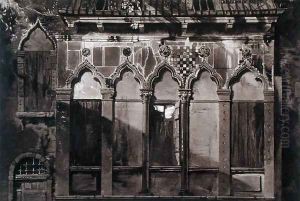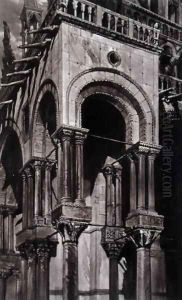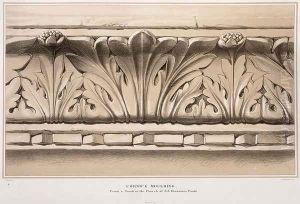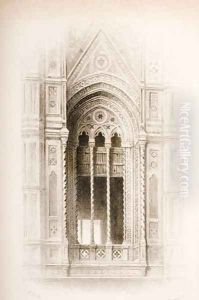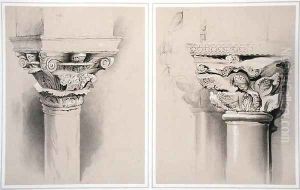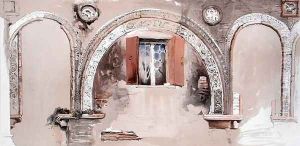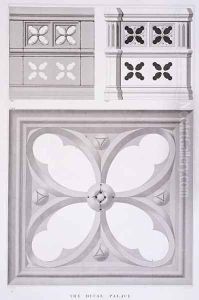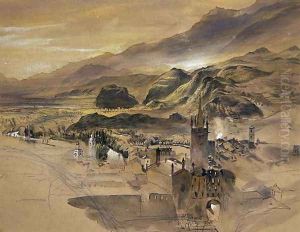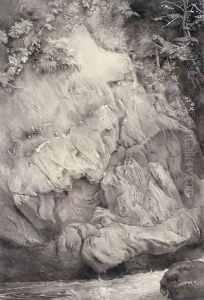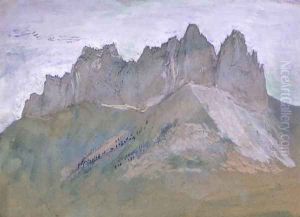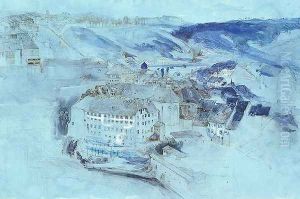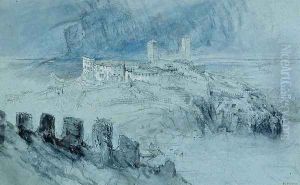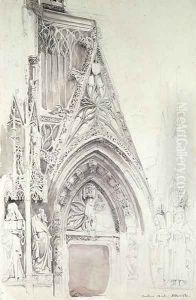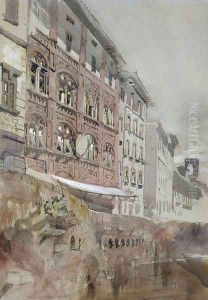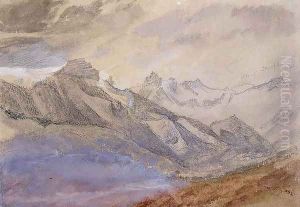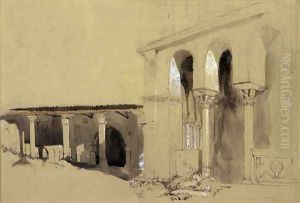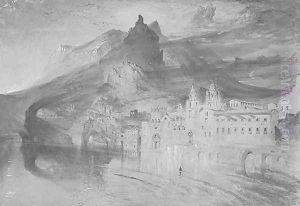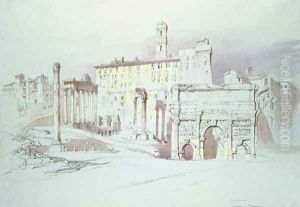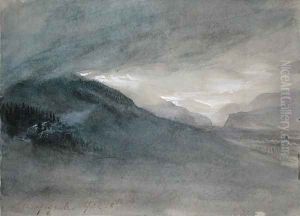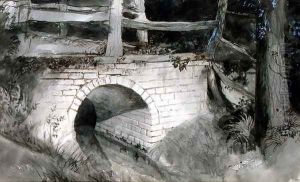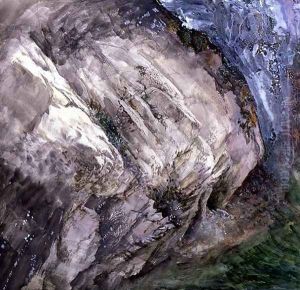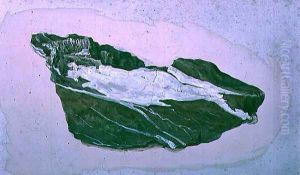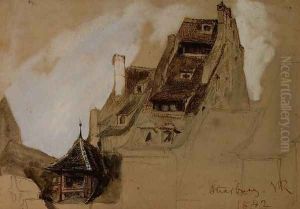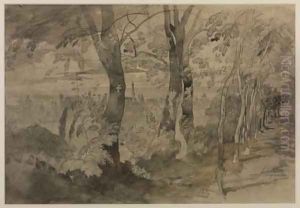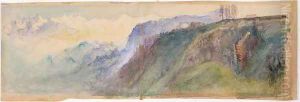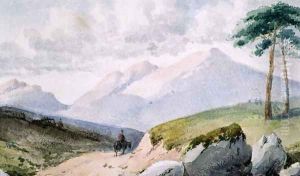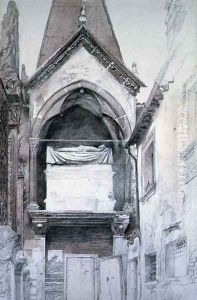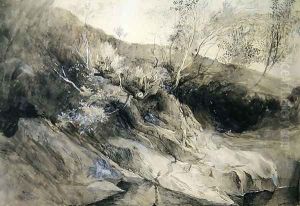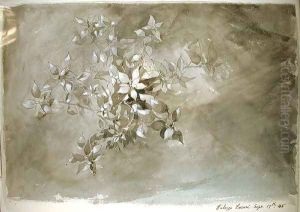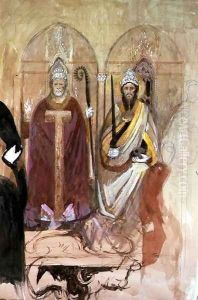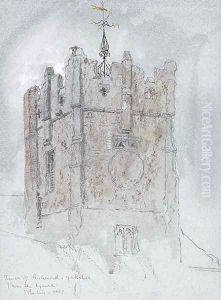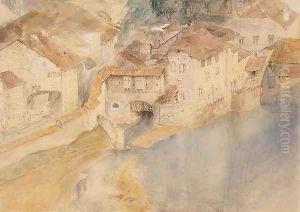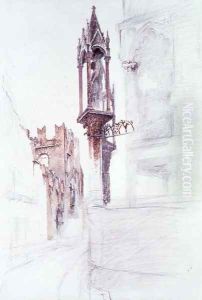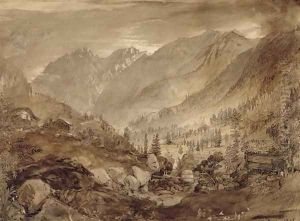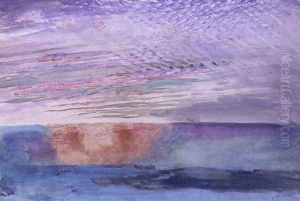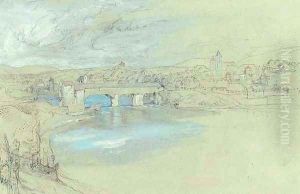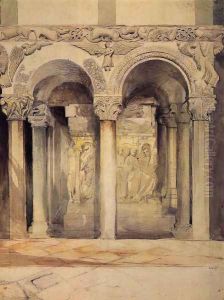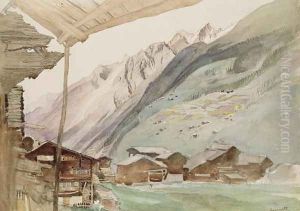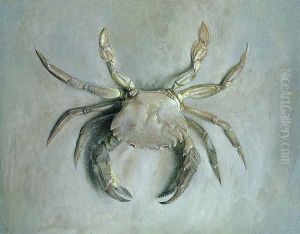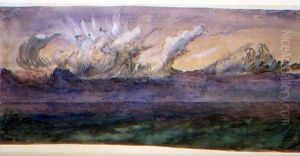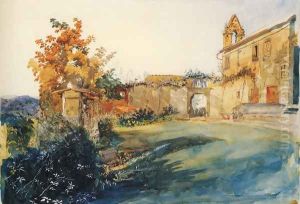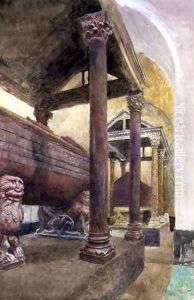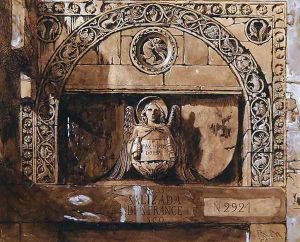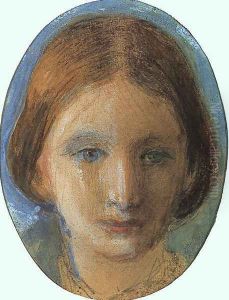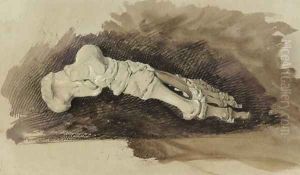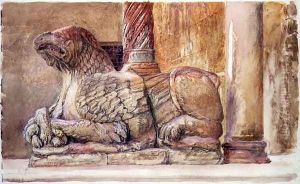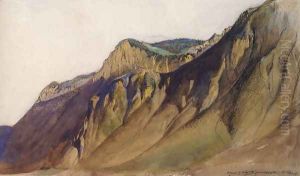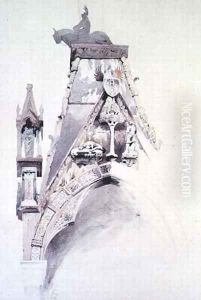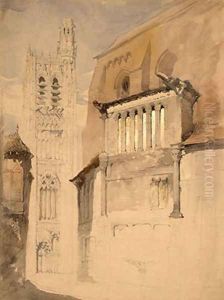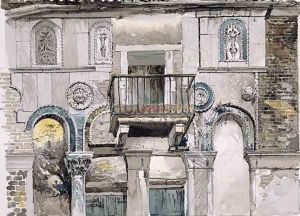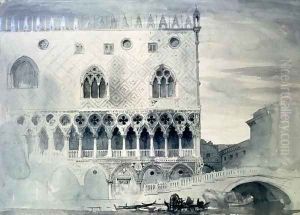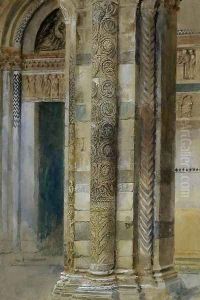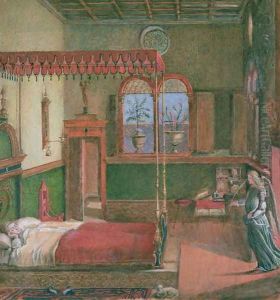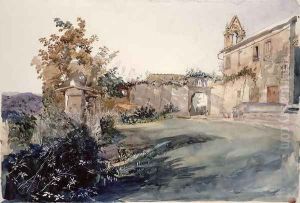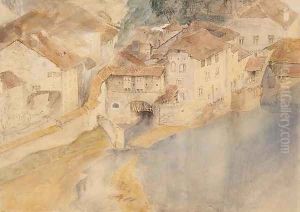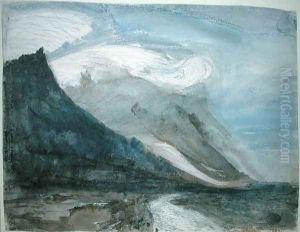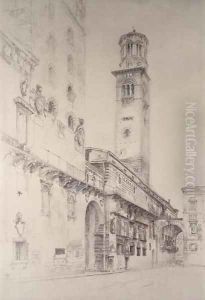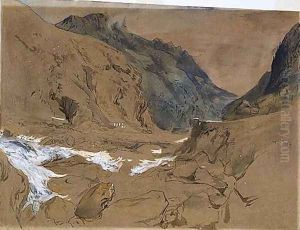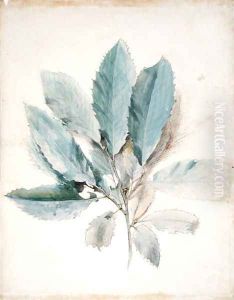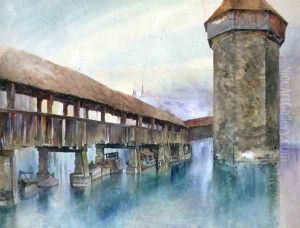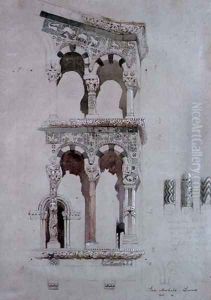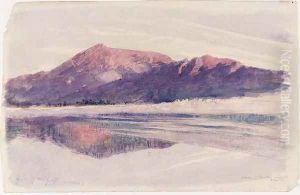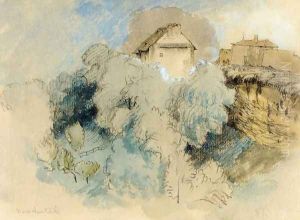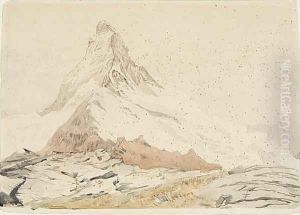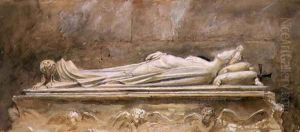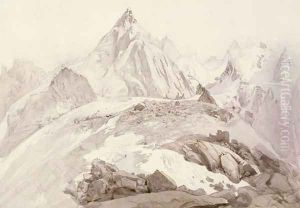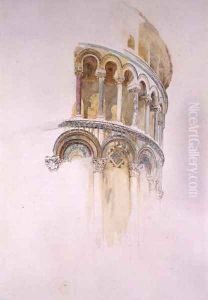John Ruskin Paintings
John Ruskin was an English art critic, philosopher, draughtsman, and prominent social thinker of the Victorian era. He was born on February 8, 1819, in London to a wealthy family. His profound impact on art, architecture, and society stemmed from his writing, which was both eloquent and prophetic. Ruskin's education began at home under the guidance of his mother and later, he attended the University of Oxford, where he won the Newdigate Prize for poetry, an early indicator of his literary talent.
Ruskin first came to prominence with the publication of the first volume of 'Modern Painters' (1843), his defense of the work of J.M.W. Turner. The work expanded into five volumes and set out broad principles for the evaluation of art. His emphasis on the connection between nature, art, and society formed a groundwork for his later work. Ruskin's interest in art led him to travel extensively across Europe, studying painting, architecture, and landscapes.
He married Effie Gray in 1848, but the marriage was annulled in 1854, partly due to Ruskin's intense work habits and possibly his unconsummated relationship with Gray. His later romantic attachment to Rose La Touche also ended tragically, which had a profound effect on his mental health.
Ruskin's later works shifted focus towards social and economic issues. His 'Unto This Last' (1860) criticized capitalism and laid out his ideals for social justice, influencing the Arts and Crafts Movement and the founding of the welfare state. In 'The Stones of Venice' (1851–53), he advanced the field of architectural history and theory, promoting the Gothic style over classical designs and arguing for the preservation of historic buildings.
Ruskin founded the Guild of St George, a philanthropic society, and was involved in various educational initiatives. He was the first Slade Professor of Fine Art at the University of Oxford, where he advocated for the importance of art in education. His lectures were notable for their passion and poetic delivery.
Ruskin's influence extended beyond art and architecture; he inspired leaders of the British Labour movement and had a direct impact on the thought of Mahatma Gandhi. His writings also foreshadowed modern ecological concerns by emphasizing sustainability and conservation.
John Ruskin's health began to decline in the 1870s, and he suffered a number of mental breakdowns. He spent his last years at Brantwood, his home in the Lake District, where he continued to write until his death on January 20, 1900. Ruskin's legacy as a visionary thinker who sought to integrate beauty, art, and morality into the fabric of society remains influential to this day.
